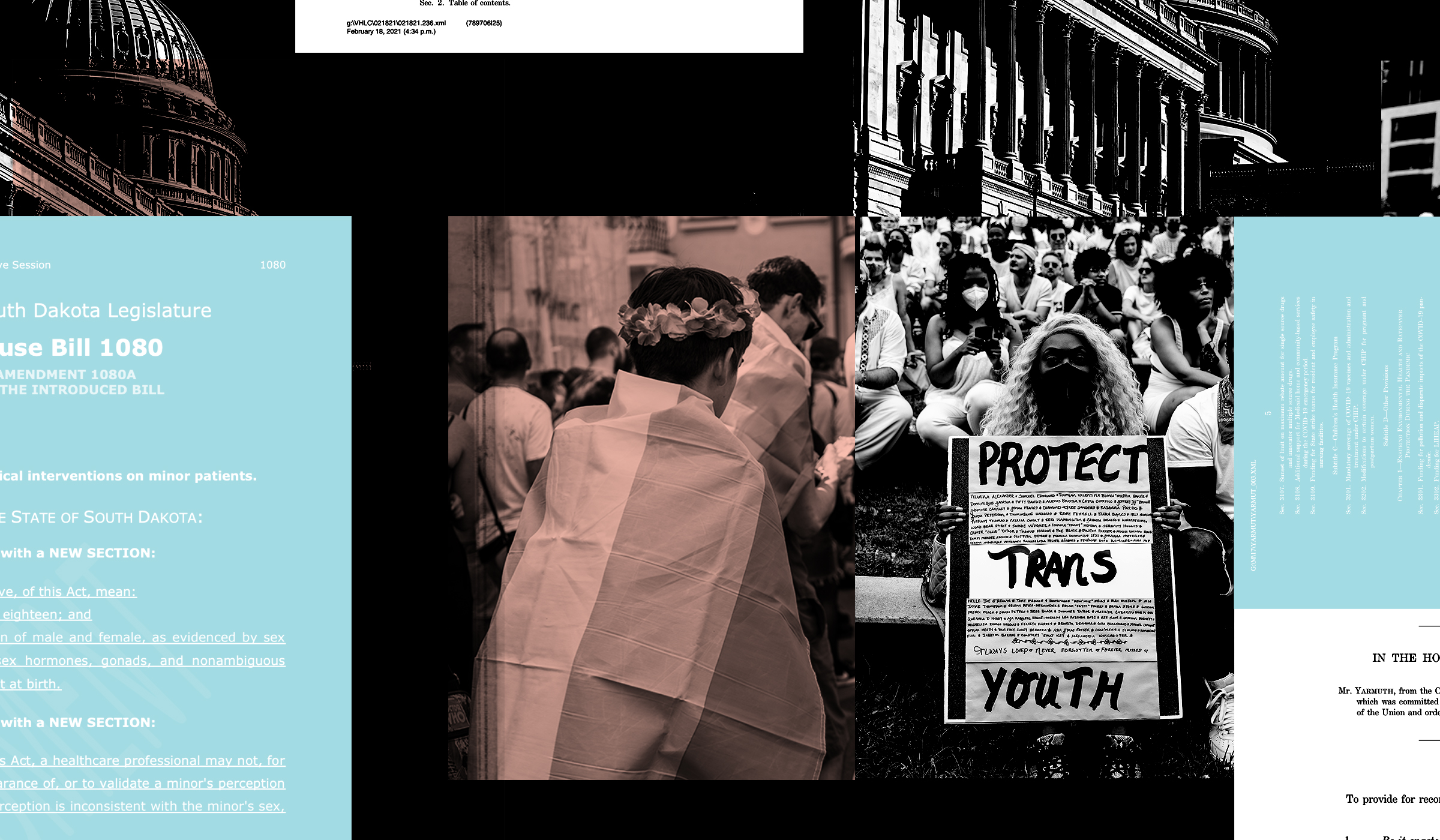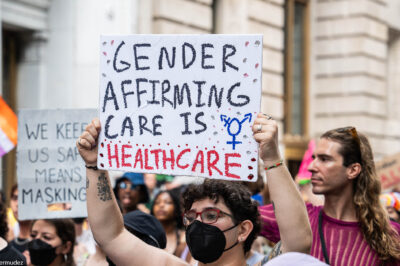
Mapping Attacks on LGBTQ Rights in U.S. State Legislatures in 2024
How state lawmakers are targeting LGBTQ rights
Overview
In the last few years states have advanced a record number of bills that attack LGBTQ rights, especially transgender youth. The ACLU is tracking these attacks and working with our national network of affiliates to support LGBTQ people everywhere.
While more states every year work to pass laws to protect LGBTQ people, state legislatures are advancing bills that target transgender people, limit local protections, and allow the use of religion to discriminate. The ACLU will not stop speaking out against these cruel attacks nationwide. LGBTQ people have a right to live in safety, to thrive, and to be treated with dignity.
How the ACLU Tracks Anti-LGBTQ Legislation:
Our legal and advocacy team works with ACLU affiliates and local organizations across the country to monitor state legislatures for bills targeting the rights of LGBTQ people. Each bill is reviewed by legal staff at the ACLU’s LGBTQ & HIV Project before being categorized on this site. The process by which bills become law or not differ in each state depending on state law and constitutions.
States
Just like Congress at the federal level, every state has a legislative body responsible for passing laws that impact their state residents. While some states have been at the forefront of advancing LGBTQ equality, state-level attacks on LGBTQ people, particularly transgender people, have escalated dramatically since 2015.
Click on a state in the map or table to show all the bills in that state.
Bill Numbers
The letters in front of the bill number refer to the legislative chamber the bill originated in:
Click on a bill number to go to its state government website with the bill's language and sponsors.
Issues
These bills would limit the ability to update gender information on IDs and records, such as birth certificates and driver’s licenses. This puts transgender people at risk of losing jobs, facing harassment, and other harms. Trans, intersex, and nonbinary people need IDs that accurately reflect who they are to travel, apply for jobs, and enter public establishments without risk of discrimination or violence.
Learn more: Transgender People and Identity Documents
Despite the safeguards of the First Amendment’s right to free expression, politicians are trying pass Drag Bans to prohibit or censor performances like drag shows. They are also fighting to pass Other Expression Restrictions to limit how and when LGBTQ people can be themselves by limiting access to books about them or other public expression of LGBTQ identity.
Learn more: How LGBTQ Voices are Being Erased in Classrooms
Healthcare Age Restrictions ban affirming care for trans youth, and can create criminal penalties for providing this care. These bills exempt identical treatments offered to cisgender youth or are forced onto intersex youth. Healthcare Funding bills target access to medically-necessary health care for transgender people through programs like Medicaid or block insurance coverage for this healthcare for transgender people. Prison Healthcare Restrictions would limit access to medically necessary healthcare for incarcerated transgender people.
Learn more: Five Things to Know About Gender-Affirming Health Care
These bills seek to prohibit transgender people from using facilities like public bathrooms and locker rooms. Everyone should have access to these spaces, no matter their gender identity or gender expression. If you can’t use the restroom, you can’t fully participate in work, school, and public life.
Learn more: Anti-Trans Bathroom Bills Have Nothing to Do With Privacy
State lawmakers are trying to prevent trans students from participating in school activities by passing School Sports Bans or School Facilities Bans that prevent transgender students from using communal restrooms, requiring Forced Outing in Schools by teachers and school staff, and Curriculum Censorship bills to prohibit any in-school discussions of LGBTQ people and issues. Instead of limiting resources, education, and opportunities, our schools should protect and support all students to learn and thrive.
Know your rights: A Guide for Trans and Gender Nonconforming Students
Re-Definition of Sex bills attempt to exclude trans and nonbinary people from protection under the law by embracing definitions of “woman” and “man” that are solely about reproductive capacity. Religious Exemptions bills undermine and weaken nondiscrimination laws by allowing employers, businesses, and even hospitals to turn away LGBTQ people or refuse them equal treatment.
Learn more: Using Religion to Discriminate
These bills don’t quite fit in any of the other categories, but nonetheless target the rights of LGBTQ people. Examples include bans on marriage and bills preempting local nondiscrimination protections.
Learn more: Trans People Belong
Statuses
A bill's status shows how far along it is on the path to becoming a law:
- Introduced: The bill has been written, filed, and assigned a number.
- Advancing: The bill may be debated and may ultimately be voted on in state legislative chambers.
- Passed Into Law: If both the state House and Senate vote to pass the same language, the bill goes to the governor and if the governor signs it, it becomes law. If a bill is vetoed by the governor, the legislature may still vote to override that veto, in which case the bill would become law.
- Defeated: The bill is vetoed by the governor, didn't get enough votes, or is withdrawn.
A lawsuit has been filed challenging the bill. Click “View case info” under the status text to learn more.
In Our Own Voice
Activists are speaking out against the bills targeting LGBTQ rights across the U.S.
Stay Informed
Sign up to be the first to hear about how to take action.
By completing this form, I agree to receive occasional emails per the terms of the ACLU’s privacy statement.
By completing this form, I agree to receive occasional emails per the terms of the ACLU’s privacy statement.
In Our Words
The end goal of anti-trans legislation is denying transgender people the words to describe our experience, the means to express it safely, and the community and support we all deserve.
— Gillian Branstetter, Bio media@aclu.org




